If Your Weight Went Up Seemingly Overnight, There Are A Few Common Reasons Behind It
"Hearst Magazines and Yahoo may earn commission or revenue on some items through these links."
You step on the scale one morning and you’re totally on track. The next morning, you’re up five pounds. WTF!?!
It’s a frustrating and bewildering experience that happens to the best of us. And we’re here to tell you that you didn’t actually gain five pounds of fat in a single day.
After all, gaining a single pound of fat requires consuming about 3,500 calories more than you can burn off. So to gain five pounds in a day, you’d have to eat nearly 20,000 calories in just 24 hours.
But gaining five pounds of water weight in a day? That’s easy, says Georgie Fear, R.D., C.S.S.D., author of Lean Habits for Lifelong Weight Loss. "It’s important to know that your weight will fluctuate on a daily basis, but it doesn’t mean that your weight-loss strategy is failing."
So if you step on the scale and find that you’ve magically gained a few pounds, consider these seven random things that can screw with your scale—and take a deep breath.
Whether you’re on a weight loss journey or not, weight fluctuations are normal. But that doesn’t mean it’s any less confusing when the scale says you’re up a few pounds from the day before. Naturally, you wonder: Can you gain weight in one day?
Don’t panic. "Your weight will fluctuate on a daily basis, but it doesn’t mean that your weight-loss strategy is failing,” says Georgie Fear, RD, CSSD, author of Lean Habits for Lifelong Weight Loss.
Rest assured, overnight weight gain is actually pretty common. Ahead, experts break down why it seems like you gained weight in one day.
Can you gain weight in one day?
To get more specific, let's do some math: Gaining a single pound of fat requires consuming about 3,500 calories more than you burn off. So to gain, say, five pounds in a day, you’d have to eat nearly 18,000 calories more than you burned in just 24 hours. (Yeah, not happening.)
On the other hand, gaining five pounds of water weight in a day is easy, Fear says. If you did one of a number of different things (see the list below!) the day or night before, “it’s not unusual to notice an increase in your weight of a few ounces or pounds,” says New York-based registered dietitian Jessica Cording, MS, RD, CDN, author of The Little Book of Game-Changers. Again, Cording chalks most of this up to water weight. But, she says, “if you notice your weight continuing to trend upwards over time, this could indicate actual weight gain.”
Meet the experts: Georgie Fear, RD, CSSD, is the author of Lean Habits for Lifelong Weight Loss. Jessica Cording, MS, RD, CDN, is a New York-based registered dietitian and the author of The Little Book of Game-Changers. Julie Ellner, MD, is a San Diego-based weight-loss specialist. Melody Covington, MD, is a weight-loss doctor at Abundant Health and Vitality. Sonya Angelone, RD, is a spokeswoman for the Academy of Nutrition and Dietetics.
How much can your weight fluctuate in one night?
FWIW: There’s nothing that happens in your body overnight that magically makes you gain weight, says Sonya Angelone, RD, spokeswoman for the Academy of Nutrition and Dietetics. “Your metabolism doesn’t stop, so you gain or lose ‘weight’ any time,” she says. And if you happen to eat more than usual on any given day, your body won’t suddenly make you gain weight overnight. “With a higher calorie day or two, metabolism increases to compensate, so fat won’t be immediately made and stored,” Angelone explains. “The opposite is true as well. If you under eat for a couple days, your metabolism will slow to compensate before losing weight.”
So there’s really no hard-and-fast number, Angelone says. (Sorry!). The key thing is if your weight goes up seemingly overnight, and sticks around for days, check your scale or call your doctor. But experts assure that a lot of overnight weight gain can be explained pretty easily.
11 Reasons It Seems Like You Gained Weight In One Day
You Hit The Gym Hard
“After a heavy workout, especially if you perform big, compound movements that recruit a lot of large muscles, you can easily weigh a few extra pounds for several days,” Fear says.
Those microscopic tears that occur in your muscle cells after every workout heal through a process of natural inflammation. That involves some pooling of fluids around the muscle cells, which can make you puff up, she says. This does not mean you should skip those calorie-torching strength moves. Just let your muscles recover and forget about the scale.
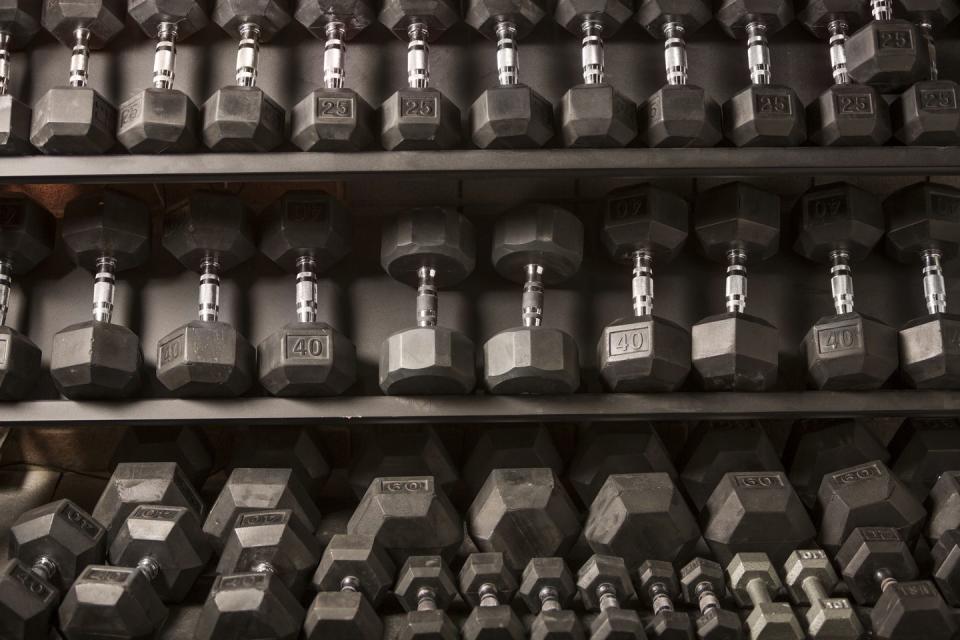
You Tend To Drink A Lot of Alcohol In The Evening
“Alcohol is dehydrating, which can lead to water retention that looks like weight gain on the scale,” Cording says.
Try curbing your drinking for a few weeks and see how it impacts your weight loss and morning weight.

You Consumed A Lot Of Salt
“Excess sodium intake leads to immediate water weight gain," says Julie Ellner, MD, a San Diego-based weight-loss specialist. That can lead to swollen ankles and a belly bulge from swelling in your intestines, she says.
Apart from the water retention, munching on salty snacks can cause constipation, too.
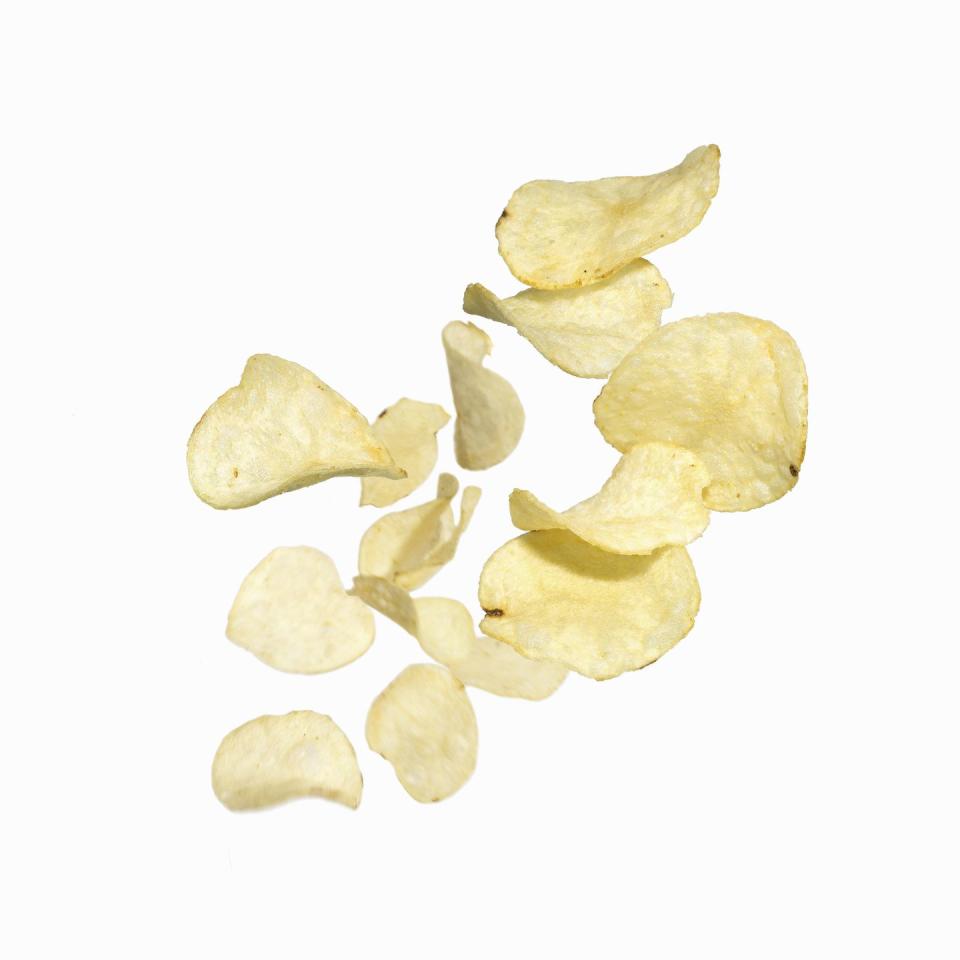
You’ve Started A High-Protein, Low-Carb Diet
Fiber is critical to keeping your digestive system working its best. So when you miss out on fiber from whole grains, fruit, and starchy vegetables, you're bound to get backed up, says Dr. Ellner.
“If you don't go for several days, that internal traffic jam can translate to a couple pounds of retained matter,” adds Fear.
While Dr. Ellner recommends that anyone on a high-protein, low-carb diet take a fiber supplement to keep things moving, an even better option is to only reduce refined carbohydrates, like pasta, and keep whole grains, veggies, and fruit as part of your diet.
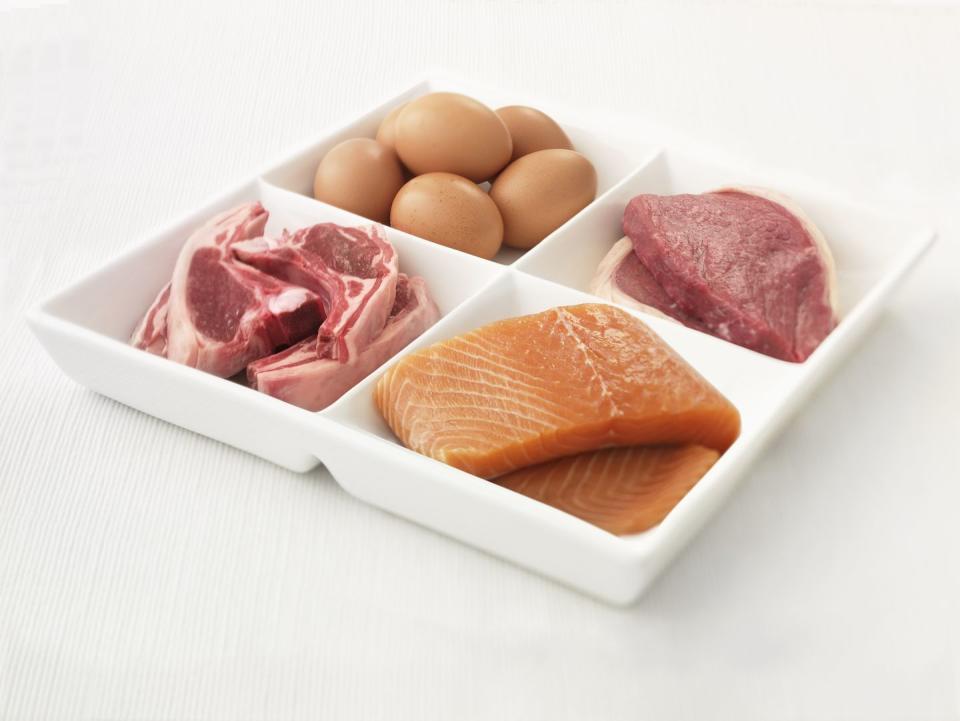
You’re Dehydrated
A lack of H2O throws your kidneys into “let’s conserve fluids” mode, says Fear. That leads to an increase in water weight once you start sipping, she adds.
But don’t worry, after a few days of hydrating properly your kidneys will get back to normal, along with your weight.
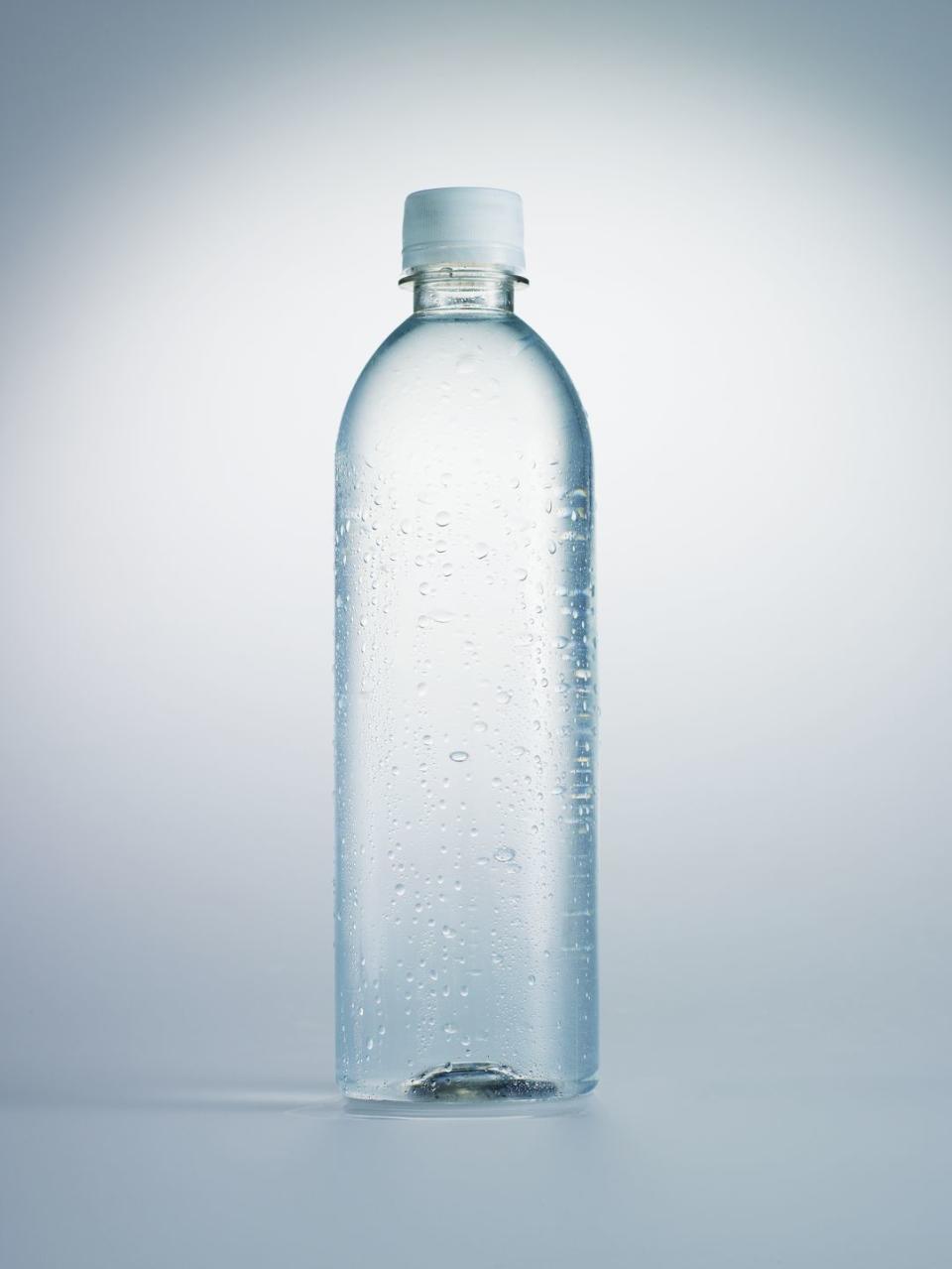
You Have A Food Intolerance
An intolerance to foods like dairy, fructose, eggs, shellfish, gluten, artificial sweeteners, soy, and many others can cause bloating and water retention, especially in your gut, says Dr. Ellner.
If you notice that you feel heavier or actually weigh more after eating certain foods, talk to your doctor or a registered dietitian before eliminating them.

You're About To Get Your Period
You can thank your hormones for pre-period pounds, says Dr. Ellner. (Though there are other reasons for period weight gain, too.) Everyone is different, but: "Some of my clients tell me they're the heaviest on the first day of their period,” Dr. Ellner says. The good news is that period-related water retention is short-lived, according to Fear.

You Upped Your Carb Intake
When you cut back on your carb intake, your body’s glycogen stores—its prime energy source for high-intensity exercise— become depleted. But as soon as you dive into some spaghetti, your body starts storing glycogen in your muscles and liver, along with H2O. The sudden influx of those two nutrients after a long stretch of being carb-free could leave you bloated, Fear says.
The best solution: Include a moderate amount of whole-grain carbs in your diet daily to prevent the cycle of weight coming on and off.
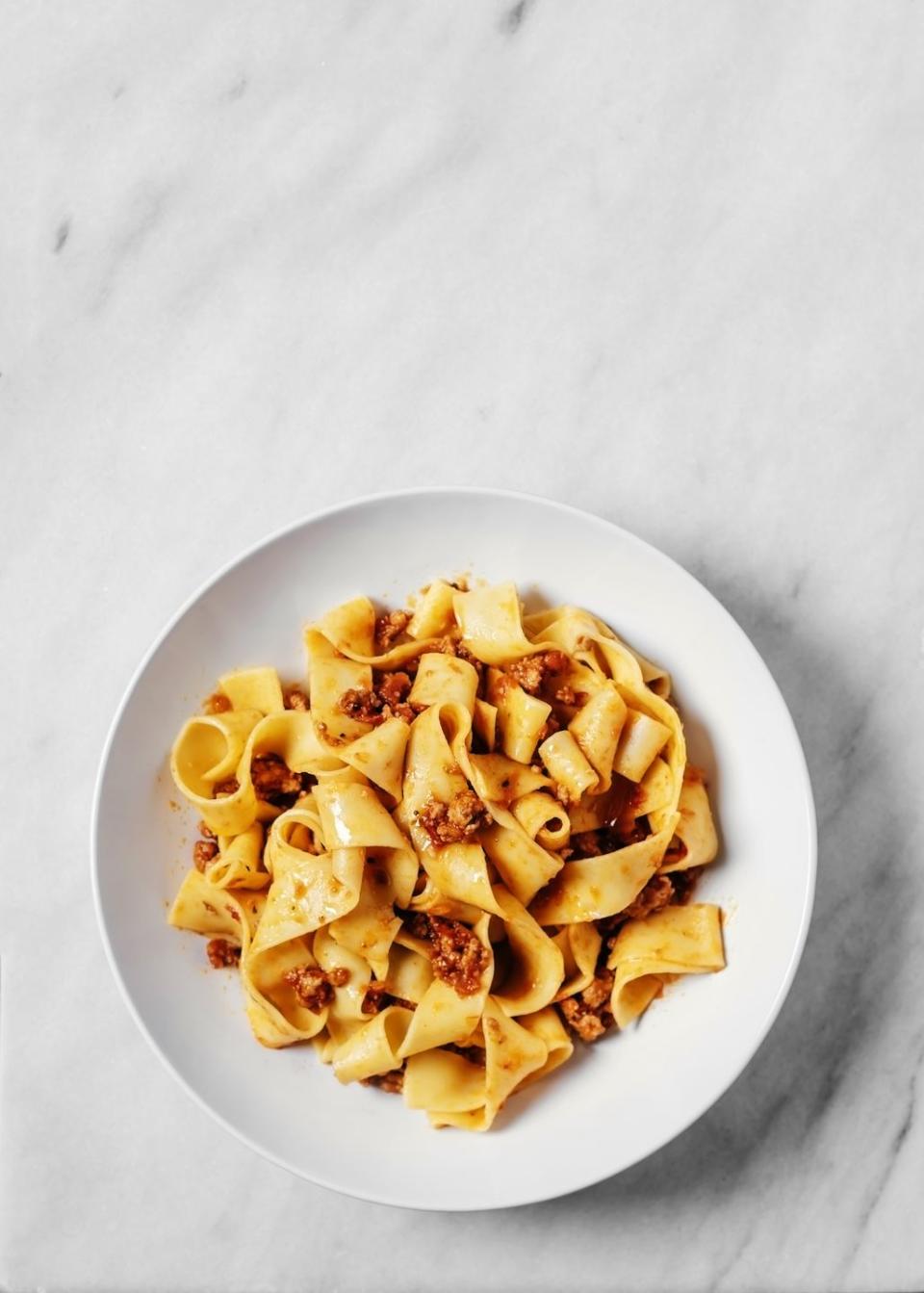
You Started New Medication
Some medications can cause your body to retain water, according to Melody Covington, MD, a weight-loss doctor at Abundant Health and Vitality. Dr. Covington also says that certain medications can increase your appetite or reduce your metabolism and increase fat storage, and she notes that weight gain is even more likely on medication that limits your ability to exercise or stay active.
If a medication seems to be causing weight gain, Dr. Covington recommends talking to your doctor and asking about alternatives or the possibility of reducing your dose. You can also work on making lifestyle changes that will promote weight loss, a healthy diet, or time for exercise.
If your doctor thinks it's appropriate, in some cases they may refer you to a bariatrician who specializes in the treatment and prevention of obesity-related diseases.

You’re On A Diet That’s Too Restrictive
If you drop too much weight or fat too fast or in a way that your body registers that something is wrong, it will try to store the fat that's available more aggressively.
"This is a survival response ingrained in our physiology. The brain does not understand 'dieting' but it understands fat loss very well and often if we diet incorrectly the brain interprets this as something unhealthy happening," says Dr. Covington. Storing fat is the body's attempt to keep us safe, she adds.
To avoid this, she recommends enlisting an expert that will help you create a healthy diet or assist you with your weight-loss goals, whether it's a fitness trainer, dietitian, weight loss doctor, or accountability partner. One easy place to start in terms of accountability is using a food-tracking app, adds Dr. Covington.

You’re Pregnant
If you’re experiencing rapid weight gain especially while on a diet, you could be expecting, says Dr. Covington. "When I see rapid gain in someone with a solid weight management plan, we need to do a pregnancy test. There have been many surprises." Take a pregnancy test just to be sure!
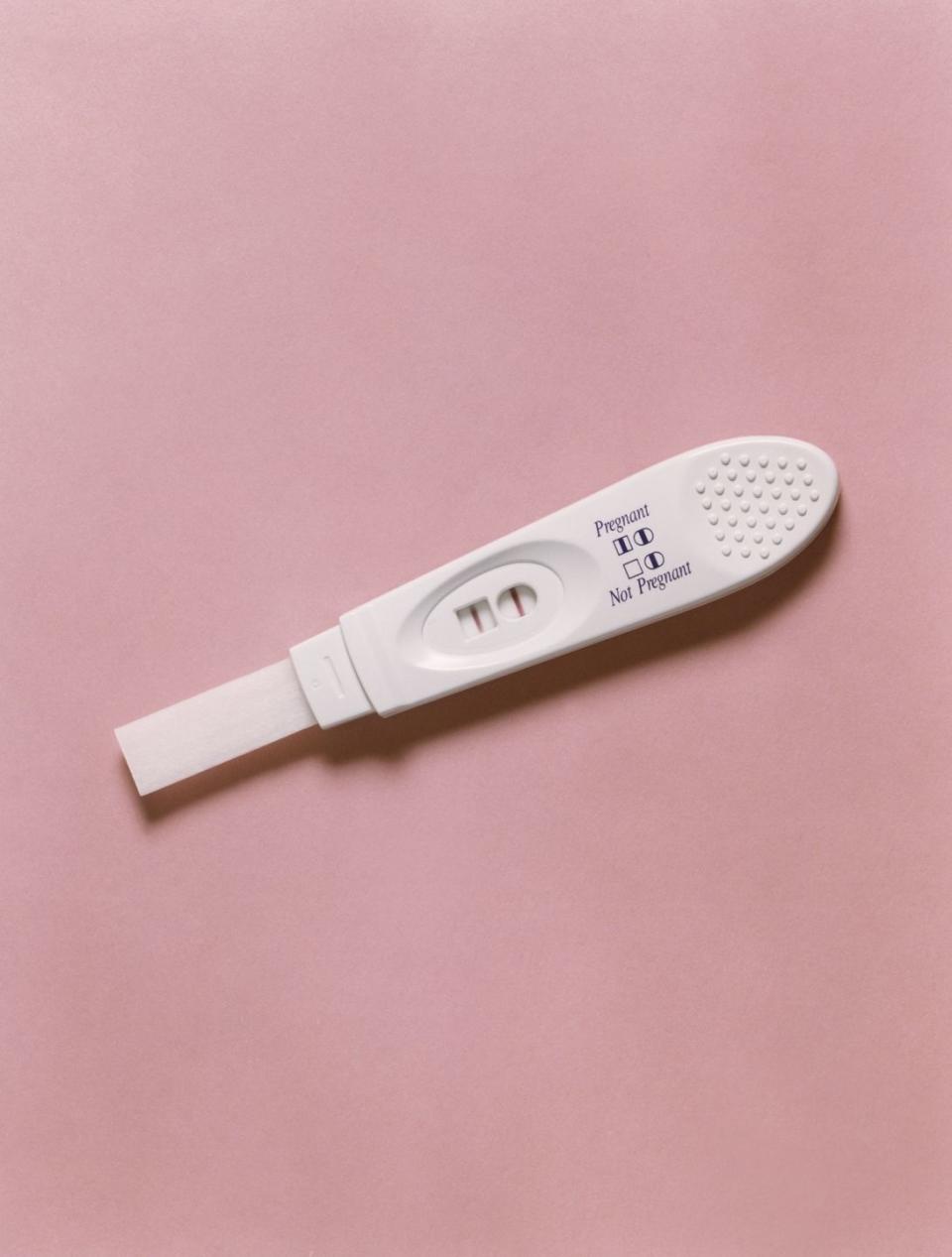
You Might Also Like

